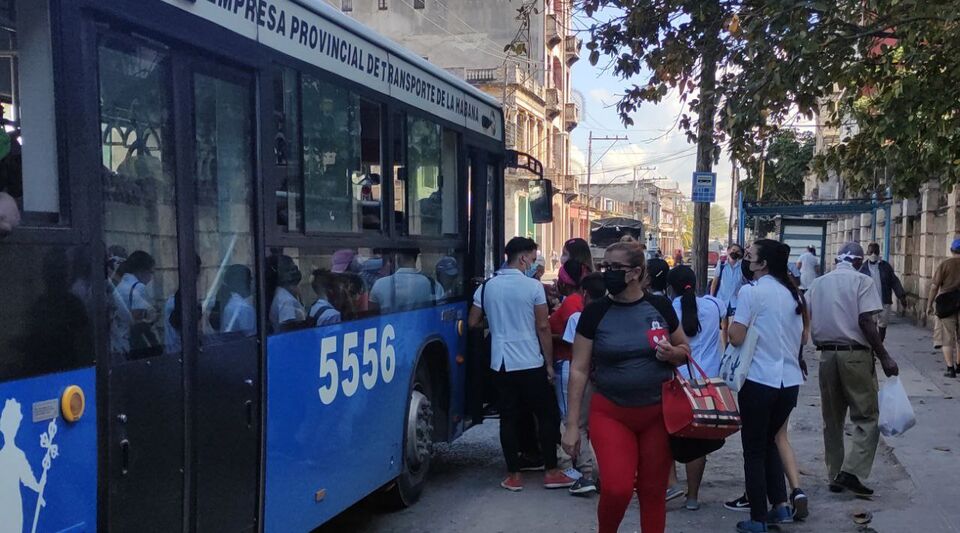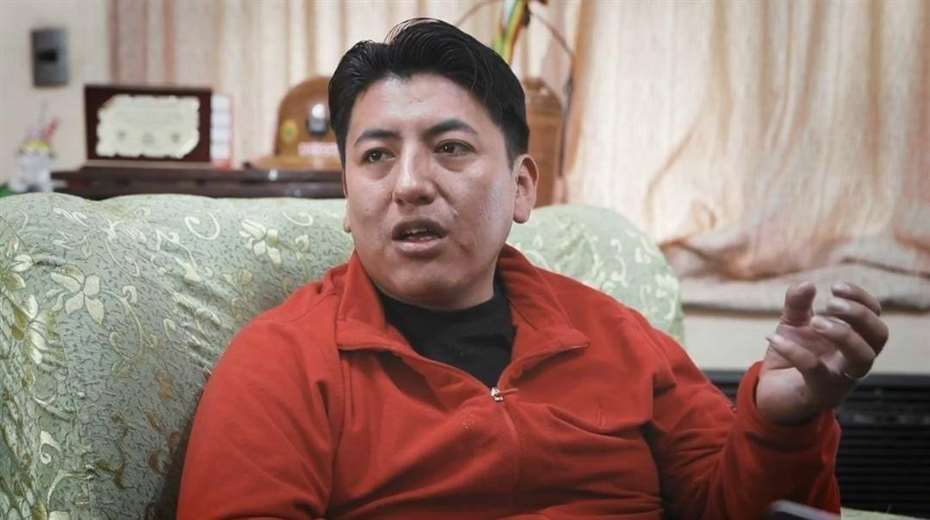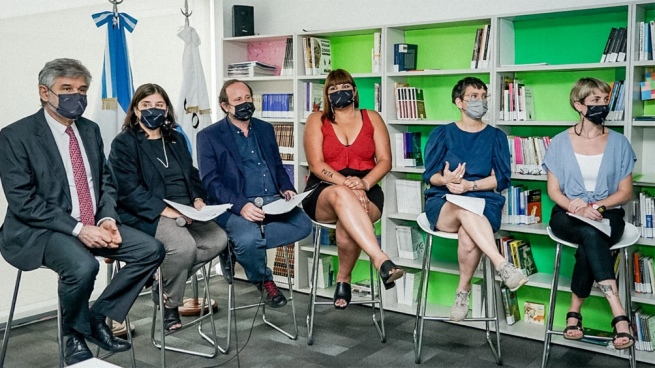It is not enough to wait for hours at the stop, make the trip tight as in a sardine canRather, passengers on buses in Havana must also take maximum care of their purses, pockets and especially their mobile phones, which have become one of the most stolen objects in public transport.
Some realize when they go down, when they try to call and the mobile only remains the memory. Others realize it while still inside the bus but they can do little to identify the possible thief of a device that has cost them several months of work or that they have obtained through their relatives abroad.
“I had just bought it when I got on P2,” he tells 14ymedio a 42-year-old from Havana who was the victim of one of these thefts. “That day I felt lucky because I even managed to reach a seat, then a woman with a child came up and I gave her the position. Shortly after I felt that I was missing the mobile phone that was in my pants pocket.”
“I asked the driver, almost crying, not to let anyone get off and to wait for the police, but he replied that he was not dedicated to that, that his thing was to transfer passengers and that was what he was going to do”
The man was immediately suspicious of the woman, who had clung to him when sitting down. “A passenger offered to call my number to hear if it rang somewhere, but only got the message that it was ‘off or out of coverage area.’
“I asked, almost crying, to the driver not to let anyone get off and to wait for the police, but he replied that he was not dedicated to that, that his thing was to transfer passengers and that was what he was going to do.” A few minutes later, the victim lined up his steps towards the Dragones police station to make the complaint. “I still have no cell phone,” he says several weeks after the robbery.
In these cases, the complaint should be made not only to the police, but also to the police. Telecommunications company (Etecsa) theft of the device. The state monopoly then blacklist the mobile’s IMEI number, a unique identification that is easy to monitor once the device is back in use with a SIM card issued by that entity.
However, there are many who never make the police report and neither do the report to Etecsa. They fear that the cell phone that was stolen from them is being investigated because they initially bought it on the black market. Or, in other cases, they do not want to be involved in a police investigation that will bring subpoenas and their name entered in a database of open investigation processes that can bring future complications.
There are many who never make the police report and neither do the report to Etecsa. They fear that the cell phone that was stolen is being investigated because initially they bought it on the black market
Three weeks ago, Alberto, a doctor who works in a polyclinic in the capital, prepared to ride on Route 43 to return home after leaving a watch. His Xiaomi mobile phone had cost him 200 CUC ($ 200) last year, and he carried it in one of the pockets of his uniform. “I don’t remember feeling anything, it must have been on the pusher inside the bus that my cell phone was stolen,” he confesses. When he got off the bus, he looked for the device and could not find it.
“I went to the police and, thanks to the management of a friend in a unit, I was able to make the complaint, but to this day my phone does not appear,” he says angrily when he remembers that he had some contacts of his patients on the agenda. and the number of all students for whom he is the thesis tutor.
Carmen, who works at the technology company for the Economy of the Ayestarán road and must take the P16 to get to her workplace, was the victim of the theft of her phone on one of those trips. “I need it a lot because my mother has Alzheimer’s, and whoever takes care of her calls me whenever a problem arises,” she says. “My son had to spend all his savings to be able to buy another one,” adds the woman, who claims to have heard of other similar robberies on the same route.
Last week, another young woman had the same fate as Carmen. He got on an A50 bus, a route that connects the National Bus Terminal, in Plaza, with Guanabacoa. On the way, the bus “was filling up, until there was no room for a pin,” one of the witnesses told this newspaper.
Among the passengers were several students who had boarded the transport to return home. At one point during the trip, one of the students was heard saying: “Reiner, hurry up, call me on the phone, they stole it from me.” His friend called and the mobile phone rang at the back of the bus and the girl tried to get there, but “without being able to specifically identify where the sound was coming from.
“Call me again, he’s still here,” the student yelled. However, on the second attempt they had already turned off the phone, adds the witness. At that moment the bus stopped at a stop and many people got out.
“I am going to the police right now, that phone is an Alcatel of the kind that Etecsa sells in MLC (freely convertible currency),” the girl said affected. “My mom bought it for me with a tremendous sacrifice.”
________________________
Collaborate with our work:
The team of 14ymedio He is committed to doing serious journalism that reflects the reality of deep Cuba. Thank you for joining us on this long road. We invite you to continue supporting us, but this time becoming a member of our journal. Together we can continue transforming journalism in Cuba.






